‘When you visit a man you should prepare yourself’: male community care worker approaches to working with men living with HIV in Cape, Town South Africa
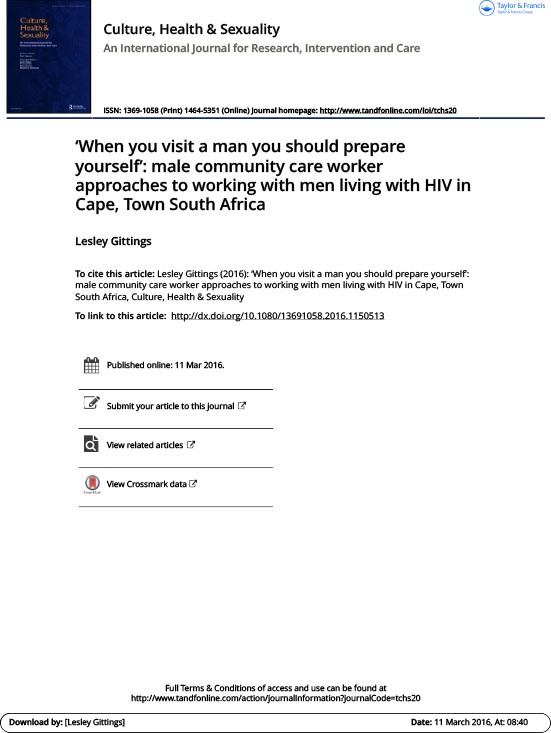
Caring is typically constructed as a feminised practice, resulting in women shouldering the burden of care-related work. Health-seeking behaviours are also constructed as feminine and men have poorer health outcomes globally. Employing men as carers may not only improve the health of the men they assist but also be transformative with regards to gendered constructions […]
Trends in ART Initiation among Men and Non-Pregnant/Non-Breastfeeding Women before and after Option B+ in Southern Malawi

Background Option B+ is promoted as a key component to eliminating vertical transmission of HIV; however, little is known about the policy’s impact on non-targeted populations, such as men and non-pregnant/non-breastfeeding women. We compare ART uptake among non-targeted populations during pre/post Option B+ periods in Zomba District, Malawi. Methods Individual-level ART registry data from 27 […]
Sex in Geneva, sex in Lilongwe, and sex in Balaka
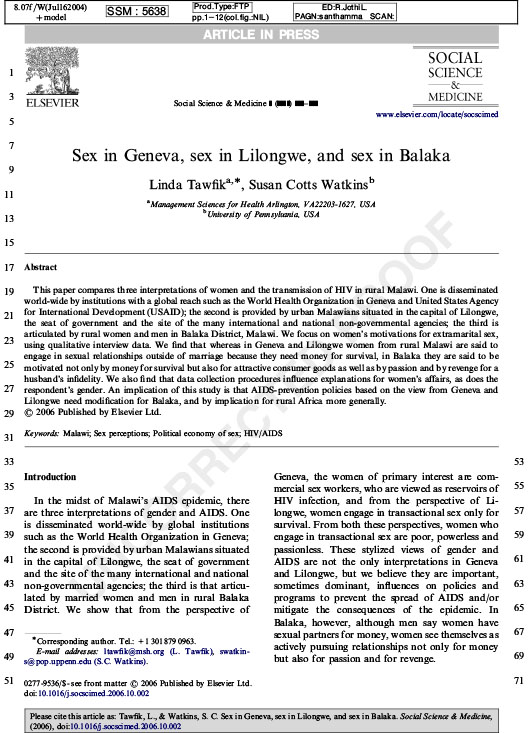
This paper compares three interpretations of women and the transmission of HIV in rural Malawi. One is disseminated world-wide by institutions with a global reach such as the World Health Organization in Geneva and United States Agency for International Development (USAID); the second is provided by urban Malawians situated in the capital of Lilongwe, the […]
Predictors of loss to follow-up among patients on ART at a rural hospital in KwaZulu-Natal, South Africa
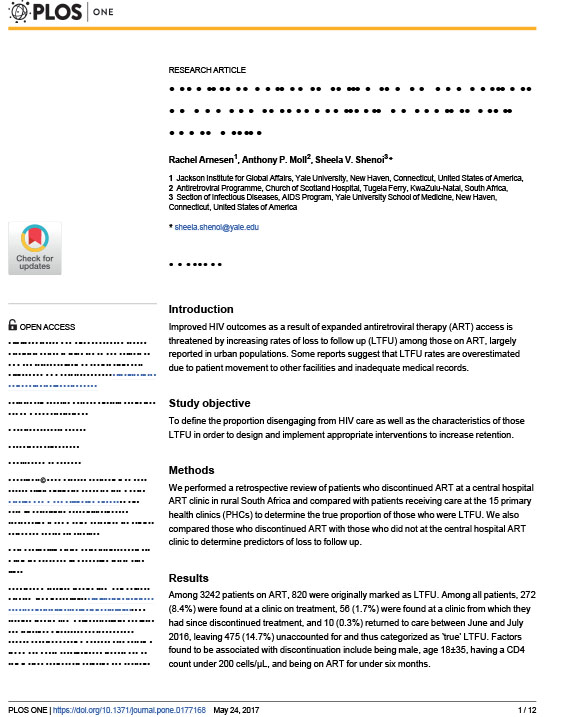
Introduction Improved HIV outcomes as a result of expanded antiretroviral therapy (ART) access is threatened by increasing rates of loss to follow up (LTFU) among those on ART, largely reported in urban populations. Some reports suggest that LTFU rates are overestimated due to patient movement to other facilities and inadequate medical records. Study objective To […]
An Incentivized HIV Counseling and Testing Program Targeting Hard-to-Reach Unemployed Men in Cape Town, South Africa
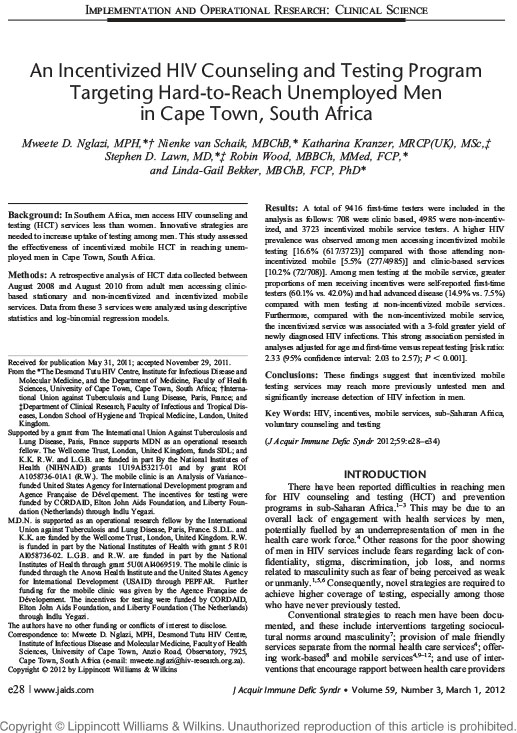
Background In Southern Africa, men access HIV counseling and testing (HCT) services less than women. Innovative strategies are needed to increase uptake of testing among men. This study assessed the effectiveness of incentivized mobile HCT in reaching unemployed men in Cape Town, South Africa. Methods A retrospective analysis of HCT data collected between August 2008 […]
Men’s heightened risk of AIDS-related death: the legacy of gendered HIV testing and treatment strategies
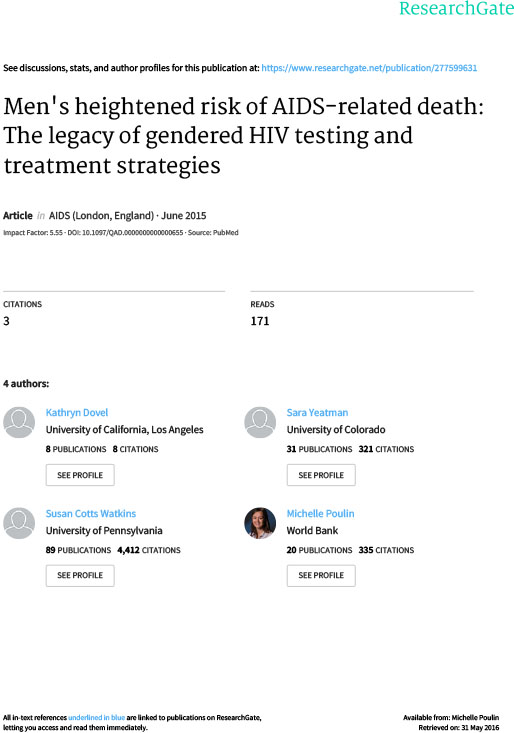
Women are frequently depicted as the face of AIDS in sub-Saharan Africa (SAA) where they comprise nearly 58% of all reported HIV infections. Donor dollars, policies, and HIV programs have followed suit, resulting in a near-exclusive focus on women. Although African women are represented as particularly vulnerable to HIV infection, it is men, not women, […]
The men’s health gap: men must be included in the global health equity agenda
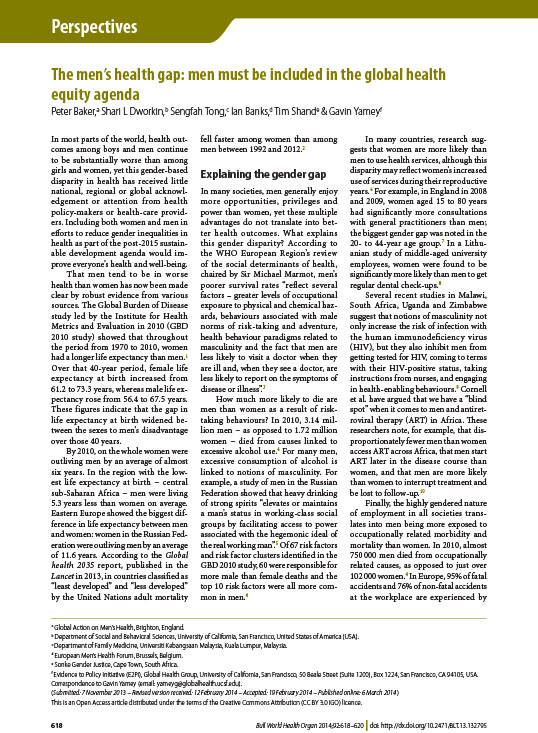
In most parts of the world, health outcomes among boys and men continue to be substantially worse than among girls and women, yet this gender-based disparity in health has received little national, regional or global acknowledgement or attention from health policy-makers or health-care providers. Including both women and men in efforts to reduce gender inequalities […]
Men with Money and the ‘‘Vulnerable Women” Client Category in an AIDS Epidemic
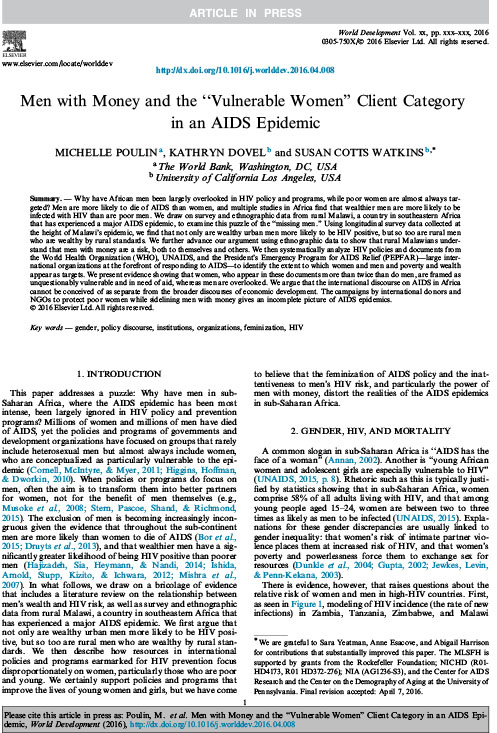
Why have African men been largely overlooked in HIV policy and programs, while poor women are almost always targeted? Men are more likely to die of AIDS than women, and multiple studies in Africa find that wealthier men are more likely to be infected with HIV than are poor men. We draw on survey and […]
Men and antiretroviral therapy in Africa: our blindspot
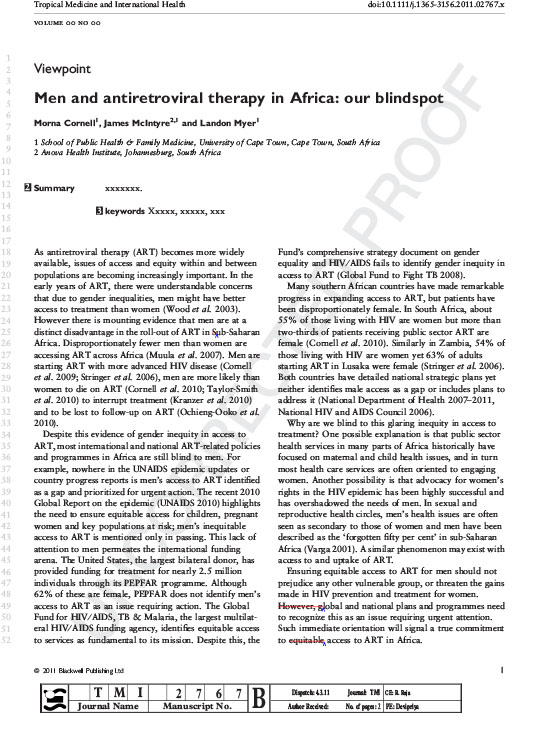
Most antiretroviral therapy (ART)-related policies remain blind to men’s treatment needs. Global and national programmes need to address this blindness urgently, to ensure equitable access to ART in Africa.
Mass HIV Treatment and Sex Disparities in Life Expectancy: Demographic Surveillance in Rural South Africa
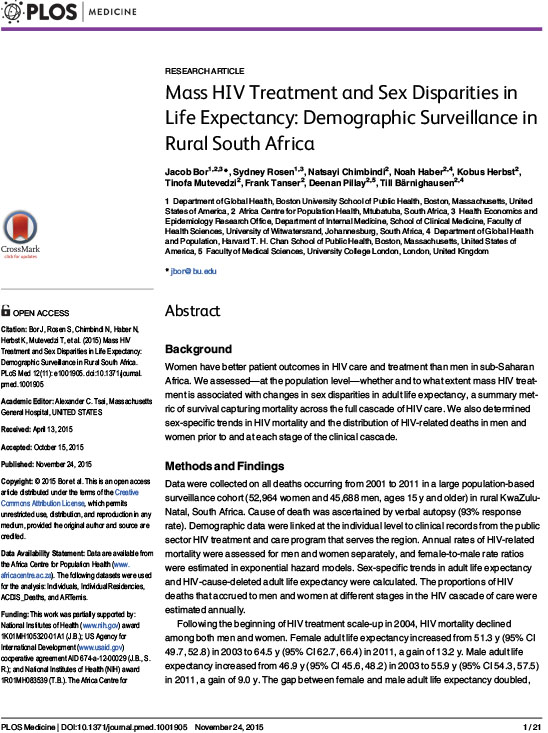
Background Women have better patient outcomes in HIV care and treatment than men in sub-Saharan Africa. We assessed—at the population level—whether and to what extent mass HIV treatment is associated with changes in sex disparities in adult life expectancy, a summary metric of survival capturing mortality across the full cascade of HIV care. We also […]


